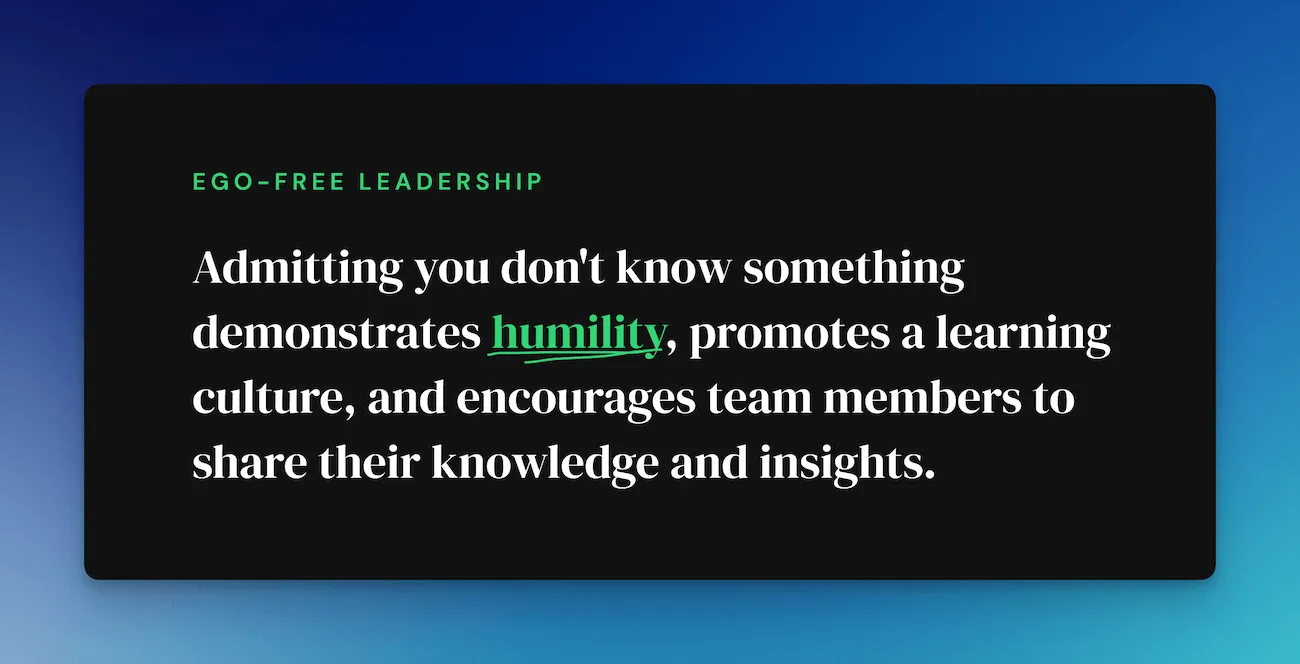Ego-Free Leadership
Learning to lead without an ego means embracing vulnerability.
The vulnerability to share your emotions. Being a leader doesn’t mean you are immune to fear or insecurity. It’s okay to share these feelings with your team. Doing so can create a safe space for everyone to openly discuss their challenges and fears, fostering a culture of empathy and mutual support.
The vulnerability to say “I don’t know”. As a leader, there will be instances where you won’t have all the answers. It’s important to communicate this honestly instead of pretending to know everything. Admitting you don’t know something demonstrates humility, promotes a learning culture, and encourages team members to share their knowledge and insights. It shows you value the expertise of your team and are open to learning from them.
The vulnerability to say “I need help”. No one can do everything alone, especially leaders. Admitting when you need help is not a sign of weakness, but rather a sign of wisdom and understanding. It shows you recognize the skills and abilities of your team members, and that you value their contributions. This can strengthen the trust and collaboration within your team, enhancing its overall performance.
The vulnerability to admit when you’re wrong. No one is perfect, and everyone makes mistakes — even leaders. Admitting when you’re wrong is a sign of strength, not weakness. It paves the way for learning and growth, allowing you to turn mistakes into opportunities for improvement and personal development.
The vulnerability to share your failures. Every leader has experienced failure at some point. Sharing these experiences with your team can be a powerful learning tool and can show it’s okay to make mistakes. By sharing your failures, you can relate better to your team members, strengthening team cohesion and mutual respect.
Remember, leadership is a journey that begins with you. Your actions, words, and emotions impact those around you.
Enjoying this post? Sign up to get weekly insights in your inbox.
